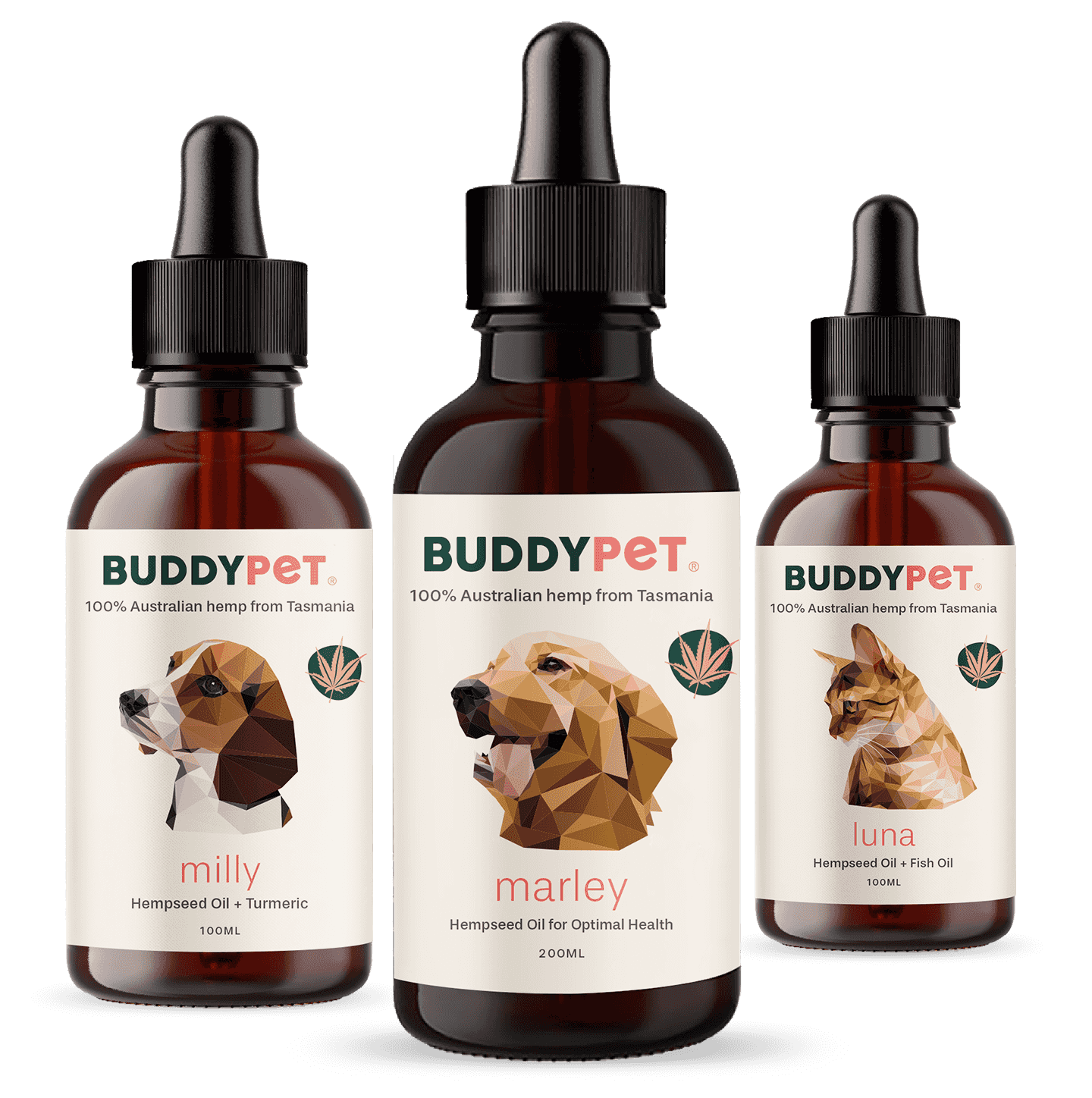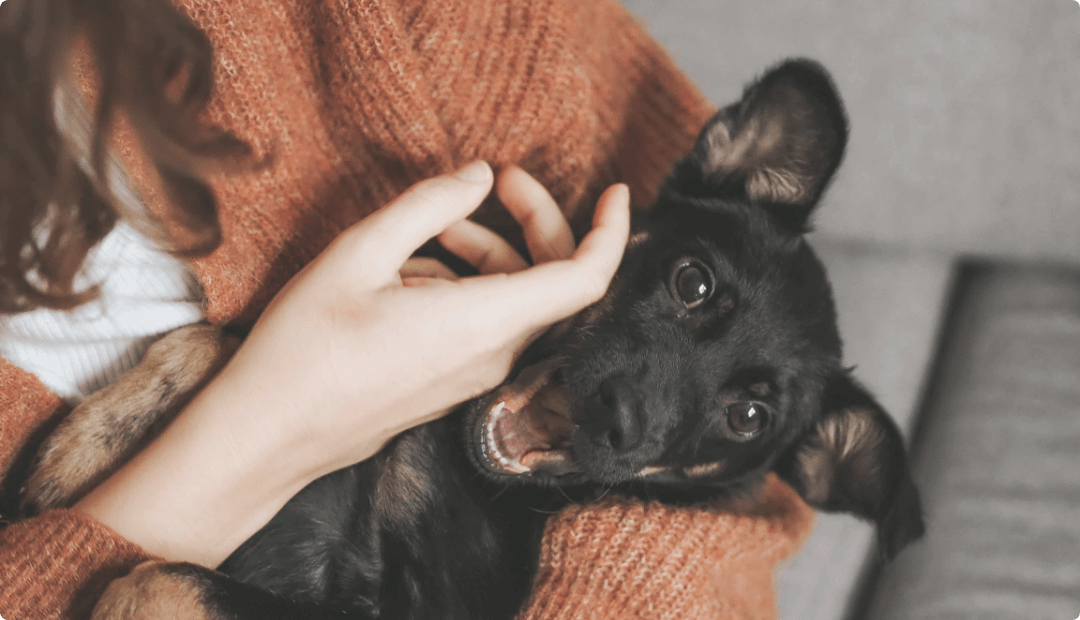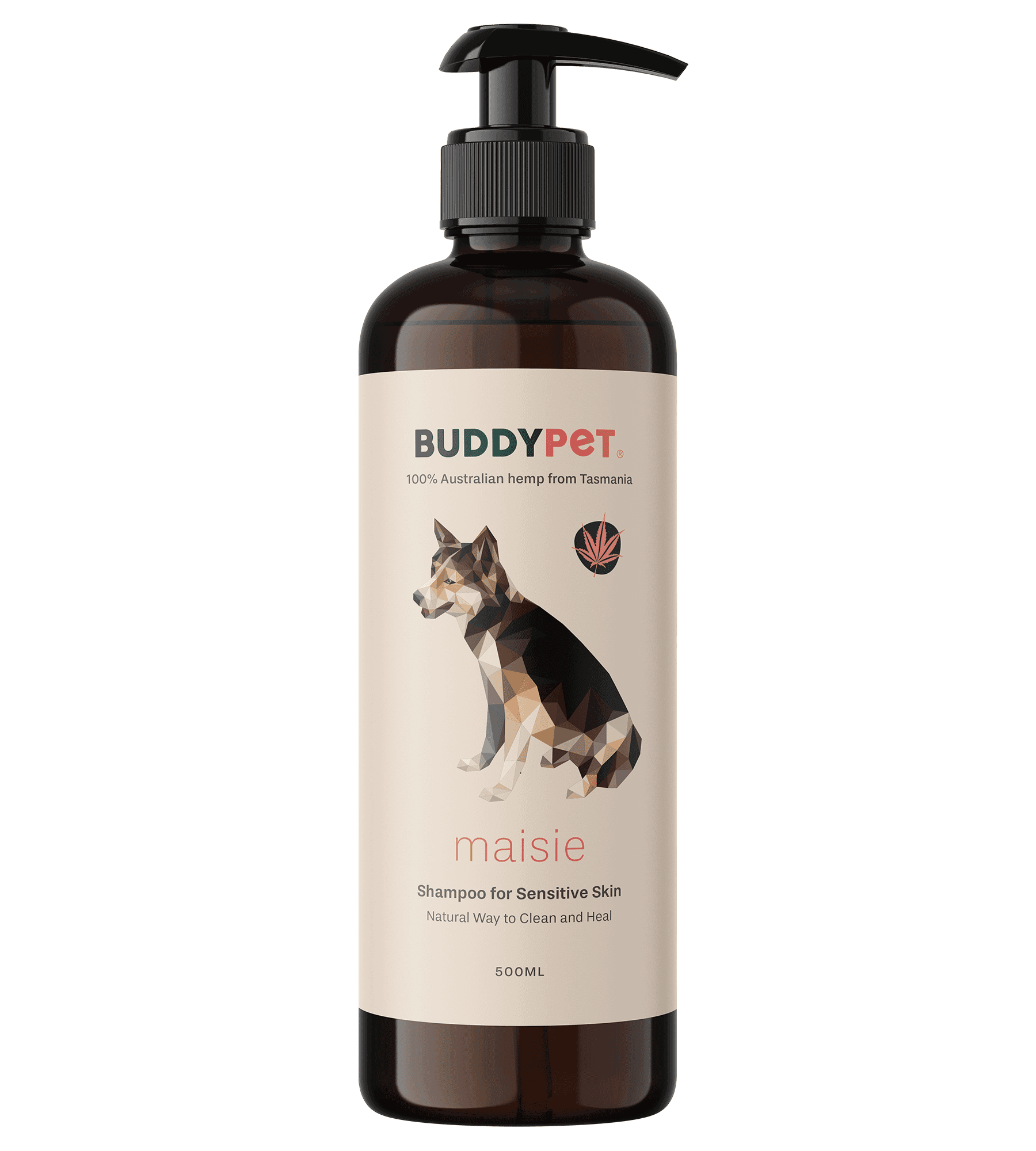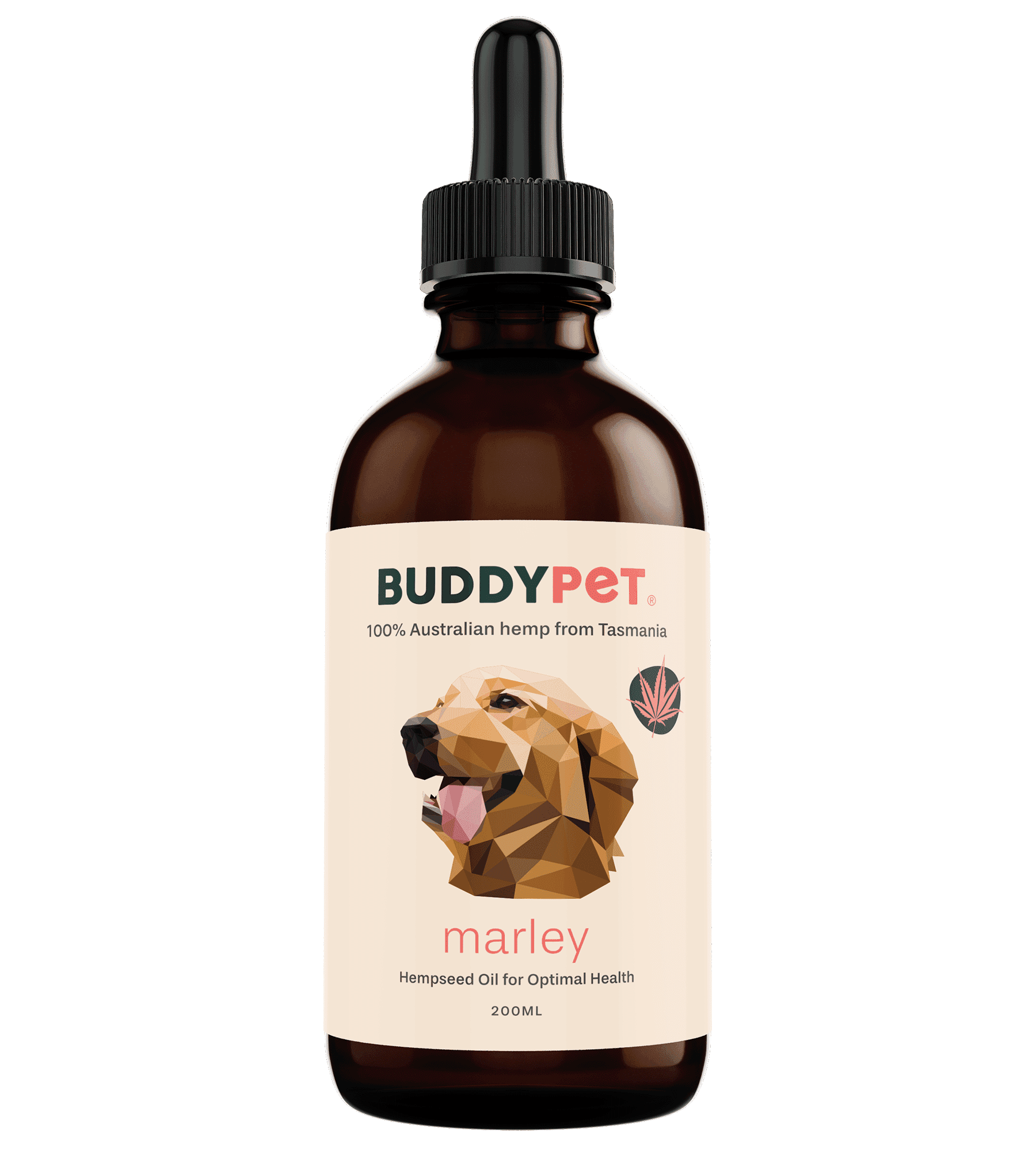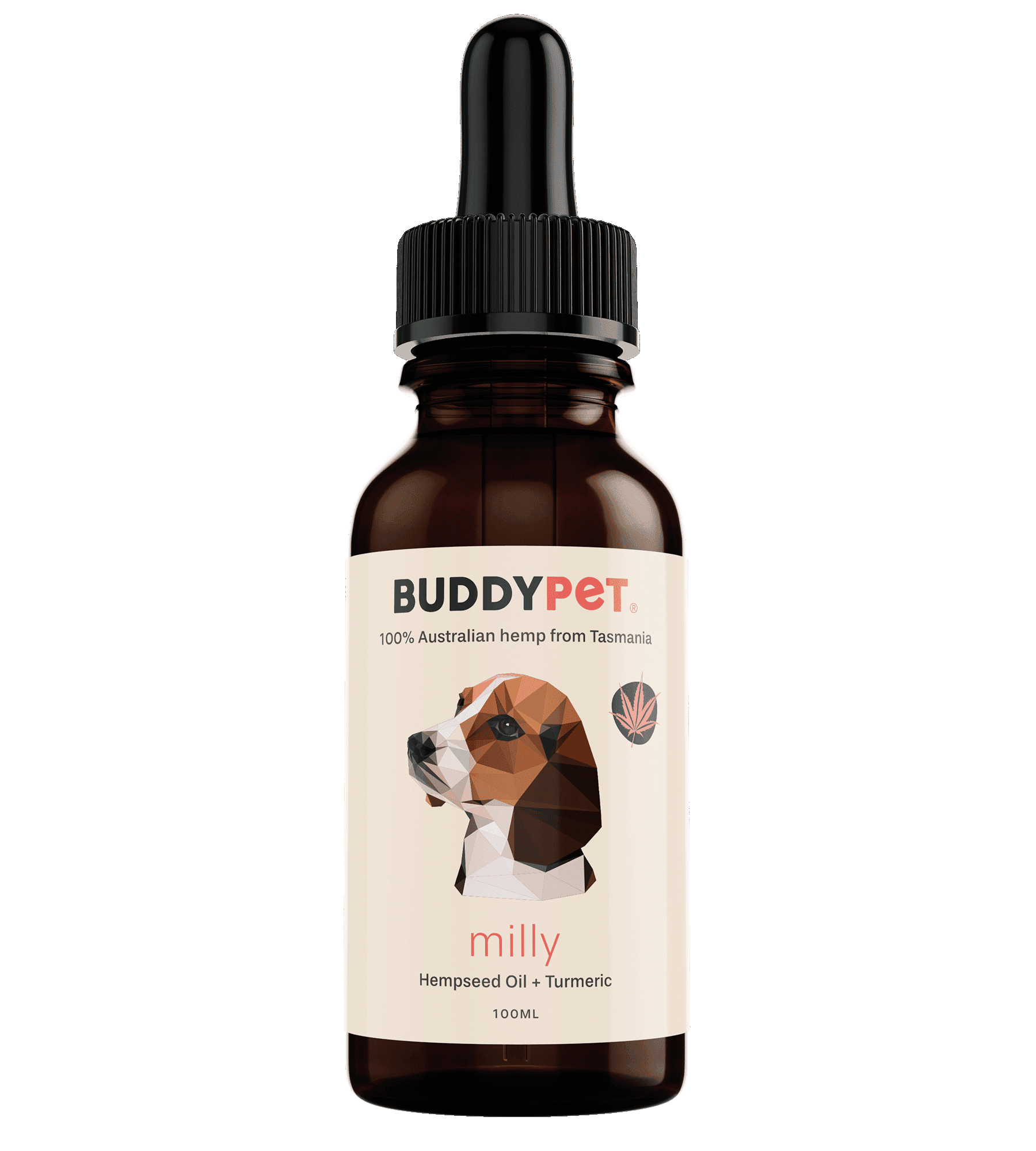When it comes to our furry friends, their health is always our top priority. Unfortunately, cancer is a reality that many dog owners may face, and early detection is key to giving your dog the best possible outcome.
In this blog, we'll dive deep intodog cancer symptoms, how to recognize them, and what can be done to keep your dog healthy. We'll also explore how hemp supplements for dogs may play a role in preventing cancer. So, let's get started.
Cancer is a word no dog owner ever wants to hear. It's a condition that can affect any dog, regardless of breed, age, or size. According to theAmerican Veterinary Medical Association (AVMA), nearly one in four dogs will develop cancer in their lifetime. While this statistic is daunting, it's important to remember that advancements in veterinary medicine have made early detection and treatment much more effective.
Knowing thedog cancer symptoms can help you act quickly if your dog develops this disease. Some of these signs can be subtle, while others are more obvious. Either way, being informed and vigilant is the best way to safeguard your dog’s health.
Let’s take a look at the common symptoms that can indicate your dog may have cancer.
Common Dog Cancer Symptoms
Recognizing the early signs of cancer in dogs is critical for early diagnosis and treatment. Here’s a breakdown of the most commondog cancer symptoms every pet owner should know.
Unexplained Weight Loss
One of the most concerning signs of illness in dogs is sudden, unexplained weight loss. If your dog is losing weight without a change in diet or exercise, it could be an indicator of cancer or another serious health issue. Cancer cells often consume a lot of energy, which can lead to dramatic weight loss even if your dog continues to eat normally.
Lumps and Bumps

While not every lump or bump is cancerous, it’s important to have any new growths checked by a veterinarian. Tumors can develop on the skin or internally, and while benign tumors are common, cancerous lumps can grow quickly and spread to other parts of the body.
- Note: Always monitor the size, shape, and texture of any lumps, and consult your vet if they change over time.
Difficulty Breathing or Coughing
If your dog starts having trouble breathing or develops a persistent cough, it may be a sign of lung or chest cancer. Dogs with cancer in these areas may also show other symptoms, like lethargy or reluctance to exercise. Respiratory problems should always be addressed promptly, as they can be a sign of a number of serious conditions.
Changes in Appetite

A sudden change in appetite—whether an increase or decrease—could indicate an underlying problem. Cancer can cause hormonal imbalances or affect organs involved in digestion, making your dog less interested in food. Alternatively, some types of cancer may lead to increased hunger as the body tries to compensate for nutrient loss.
Persistent Pain or Discomfort
If your dog is constantly in pain or seems uncomfortable, it could be due to cancer. Pain can occur from tumors pressing on nerves, bones, or other tissues. For example,bone cancer (osteosarcoma) is particularly painful and may cause your dog to limp or favor a limb.
- Look for signs: Yelping, limping, avoiding movement, or constant licking of a specific area may indicate discomfort related to cancer.
Lethargy or Fatigue
Dogs are naturally energetic creatures, so if your dog seems unusually tired or uninterested in daily activities, it’s worth investigating.Lethargy can be a symptom of many health issues, including cancer, as the body’s resources are directed towards fighting off the disease.
Unusual Bleeding or Discharge
Blood in places it shouldn’t be—such as in vomit, urine, stool, or from the nose—can be a warning sign of cancer. Unexplained bleeding is especially common with cancers affecting the blood vessels, spleen, or internal organs.
- Discharge from the eyes, ears, or nose could also be indicative of head or neck cancers.
Changes in Bathroom Habits
If your dog suddenly starts having difficulty urinating or defecating, it could be a sign of cancer in thebladder, kidneys, or colon. Pay attention to any straining, frequent urination, blood in urine or stool, or diarrhea.
Behavioral Changes
Dogs may become more irritable, anxious, or depressed when they are feeling unwell. Cancer can cause a wide range of emotional and behavioral changes, including withdrawal from social interaction, increased aggression, or excessive clinginess. Changes in sleep patterns can also be an indicator.
Uncommon Dog Cancer Symptoms to Watch Out For

While many dog cancer symptoms are well-known, there are a few that are less obvious and often overlooked. Recognizing these uncommon signs could be crucial for early detection.
- Persistent Bad Breath: While bad breath is often linked to dental issues, it can also be a sign of cancers in the mouth or gastrointestinal tract. If your dog’s breath suddenly becomes foul, it’s worth having your vet check for potential underlying issues.
- Vision or Hearing Loss: A gradual or sudden loss of vision or hearing could be a sign of cancer in or near the brain. It’s easy to chalk these changes up to aging, but it’s important to rule out more serious conditions.
- Difficulty Swallowing: Dogs withthroat or esophageal cancer may have trouble swallowing, often leading to drooling, coughing, or gagging during meals. If your dog seems to struggle when eating or drinking, have them evaluated by a vet.
- Seizures: While seizures can be caused by a variety of issues, they can also indicate brain tumors or other neurological cancers. If your dog has a seizure for the first time, it’s critical to seek medical attention immediately.
- Excessive Thirst: Cancer affecting the liver or kidneys may cause your dog to drink more water than usual. If your dog is consuming excessive amounts of water and urinating frequently, this could be a sign of an underlying issue, including cancer.
These symptoms may not immediately seem alarming but, when combined with other changes, they can point toward cancer or other serious health conditions. Always trust your instincts as a pet owner—if something seems off with your dog, it’s worth investigating.
Early Detection is Key
The sooner cancer is detected in dogs, the better the chances of successful treatment. Regular veterinary checkups, especially as your dog ages, are crucial. Additionally, being observant of your dog’s daily habits and noting any changes can help you catch cancer early on.
Here are a few tips to promote early detection:
- Conductmonthly physical exams on your dog at home. Feel for any lumps, monitor their weight, and observe their breathing and energy levels.
- Schedulebi-annual vet visits for senior dogs.
- If you notice any of the symptoms mentioned above, contact your veterinarian immediately.
Hemp Supplements for Dogs: Can They Prevent Cancer?

While there is no magic pill to prevent cancer, some natural supplements are showing promise in supporting dogs’ overall health and potentially lowering their cancer risk. One of the most talked-about supplements ishemp.
The Science Behind Hemp and Cancer Prevention
Hemp contains compounds known ascannabinoids, which interact with your dog’s endocannabinoid system (ECS). The ECS is responsible for maintaining balance in the body and regulating functions like immune response, mood, and inflammation.
Emerging research suggests that cannabinoids have anti-inflammatory and antioxidant properties that could be beneficial in cancer prevention. While more research is needed, there is scientific evidence pointing to hemp's potential benefits for pets.
How Hemp Supports Your Dog's Immune System
A strong immune system is your dog’s first line of defense against cancer.Hemp oil andCBD (cannabidiol) derived from hemp can help strengthen your dog’s immune response by promoting the production of white blood cells. This can help the body fight off abnormal cells before they turn into full-blown cancer.
Anti-inflammatory Properties of Hemp
Chronic inflammation has been linked to cancer in both humans and dogs. Hemp’santi-inflammatory properties may help reduce this inflammation and prevent it from contributing to the development of cancer. By addressing inflammation at its source, hemp could help your dog stay healthier for longer.
Omega-3 and Omega-6 Fatty Acids
Hemp oil is rich inomega-3 and omega-6 fatty acids, which have been shown to reduce the risk of cancer and improve overall health. These essential fatty acids promote healthy skin, coat, joints, and immune function, all of which contribute to better overall well-being.
FAQs About Dog Cancer and Hemp Supplements
Can hemp supplements cure cancer in dogs?
No, hemp supplements cannot cure cancer, but they may help manage symptoms and improve your dog’s quality of life by reducing inflammation, pain, and anxiety.
Are hemp supplements safe for all dogs?
Most dogs tolerate hemp supplements well, but it’s always a good idea to consult your veterinarian before introducing any new supplement to your pet’s diet.
How long do hemp supplements take to work?
You may start to see improvements in your dog’s comfort and well-being within a few weeks of starting hemp supplements, but this can vary depending on your dog’s size, health, and specific condition.
Can hemp supplements interact with other medications?
Hemp supplements can interact with certain medications, especially those that affect the liver. Always consult with your vet if your dog is on medication and you're considering adding hemp to their regimen.
Conclusion
Understanding thedog cancer symptoms and knowing how to recognize them is crucial for the health of your furry friend. The earlier you detect any warning signs, the better the chances of successful treatment. Regular vet visits, a healthy lifestyle, and possibly incorporating hemp supplements help keep your dog in good health.
Hemp supplements, while not a cure for cancer, show promising potential in supporting immune function, reducing inflammation, and promoting overall wellness. If you're considering hemp supplements for your dog, consult your vet to discuss the best options for your pet.
Being proactive about your dog’s health can make all the difference, and knowing what to look for is the first step in safeguarding your beloved companion’s well-being. Stay informed, stay observant, and most importantly, shower your pup with love and care!

